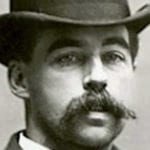 History
History  History
History  Health
Health 10 Everyday Activities That Secretly Alter Consciousness
 History
History Top 10 Historical Disasters Caused by Someone Calling in Sick
 Animals
Animals 10 New Shark Secrets That Recently Dropped
 Movies and TV
Movies and TV 10 Forgotten Realities of Early Live Television Broadcasts
 Technology
Technology 10 Stopgap Technologies That Became Industry Standards
 Weird Stuff
Weird Stuff 10 Wild Facts About Taxidermy That You Probably Didn’t Know
 Travel
Travel 10 Beautiful Travel Destinations (That Will Kill You)
 Miscellaneous
Miscellaneous 10 Modern Marriage Rituals Born from Corporate Branding
 Weird Stuff
Weird Stuff Ten Bizarre Visions of 2026 from Fiction
 History
History 10 “Modern” Problems with Surprising Historical Analogs
 Health
Health 10 Everyday Activities That Secretly Alter Consciousness
 History
History Top 10 Historical Disasters Caused by Someone Calling in Sick
Who's Behind Listverse?

Jamie Frater
Head Editor
Jamie founded Listverse due to an insatiable desire to share fascinating, obscure, and bizarre facts. He has been a guest speaker on numerous national radio and television stations and is a five time published author.
More About Us Animals
Animals 10 New Shark Secrets That Recently Dropped
 Movies and TV
Movies and TV 10 Forgotten Realities of Early Live Television Broadcasts
 Technology
Technology 10 Stopgap Technologies That Became Industry Standards
 Weird Stuff
Weird Stuff 10 Wild Facts About Taxidermy That You Probably Didn’t Know
 Travel
Travel 10 Beautiful Travel Destinations (That Will Kill You)
 Miscellaneous
Miscellaneous 10 Modern Marriage Rituals Born from Corporate Branding
 Weird Stuff
Weird Stuff Ten Bizarre Visions of 2026 from Fiction
10 Bizarre Superstitions of 19th-Century Baseball Players
Major League Baseball has announced that in 2023, opening day falls on March 30th, when 30 teams will play 15 games. There’s a lot to be said about baseball players. Athletic. Clever. And surprisingly superstitious.
The superstitions followed by some baseball players are things that most people would consider outright odd. For example, Wade Boggs ate fried chicken in advance of every game, while modern players have lucky underwear. Baseball players have followed strange superstitions since baseball was first played, though.
Following the Civil War’s end, the game experienced a substantial period of growth. The earliest baseball players were amateurs who played games in front of large crowds. Over the years, the amateurs were replaced by paid players between the 1870s and 1905. While 19th-century baseball players were an unusual group, some of the stories about 19th-century player superstition are noteworthy and unparalleled even in today’s league.
Related: 10 Times Old Superstitions Became Deadly
10 Drinking Hot Turkey Gravy
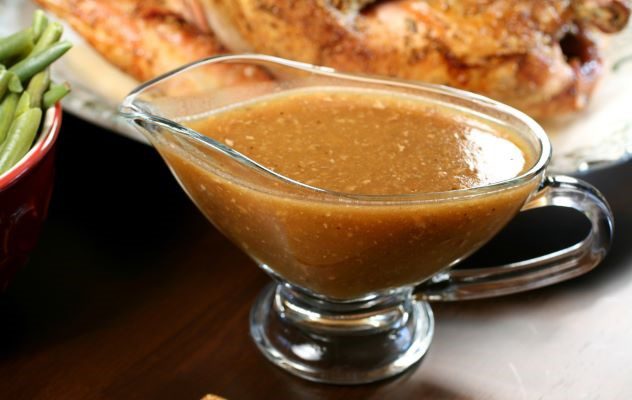
For the first time, the Baltimore Orioles won the National League pennant in 1894 after winning 24 of their 25 games. In the last Temple Cup competition, the Orioles came second behind New York in a 4 to 0 series. Every man on the starting lineup hit above .300, while five players drove in greater than 100 runs. The team also featured six Hall of Famers. But that’s not strange—what’s strange is the superstition that the team believed brought them good luck.
Each member of the Orioles team drank a glass of turkey gray each day before batting practice. This bizarre superstition likely had nothing to do with why the Orioles won the pennant that year. The team is also known to have cheated in various ways: by icing balls, placing soap around the pitcher’s mound so the other team’s pitcher couldn’t get a grip, and making their baselines lopsided so bunts rolled past the foul line.[1]
9 The Evil Eye
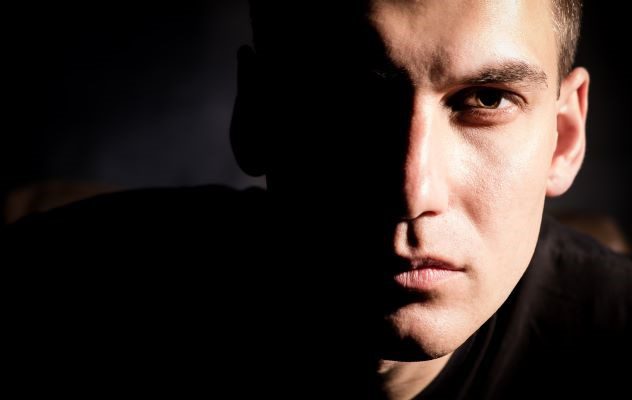
William “Billy” Moffat Earle was a Major League Baseball catcher from 1889 to 1894. Even though he played for five teams during this time, he had a reputation as one of the best catchers in the league. Billy was almost as well known for being “creepy” as a good catcher. He viewed himself as a hypnotist and made many of his teammates uncomfortable due to this and his other superstitions. In his final 1894 season, he played with the Louisville Colonels, where he hit and batted well. After being released in July, he signed for a month with the Brooklyn Grooms.
One publication claimed that Earle could hypnotize people and had magnetic powers. Players on Billy’s teams, however, felt he had an “evil eye,” a superstitious belief brought on by a person’s glance. In 1887, Billy was in a boat accident with two teammates on the Mississippi River. Billy and one of his teammates lived while the other teammate drowned. The teammate who lived recalled the spooky look in BIlly’s eyes while he watched the man drown. Ultimately, superstition and not talent kept Billy from pursuing his baseball career further.[2]
8 Not Speaking to His Own Starting Pitcher
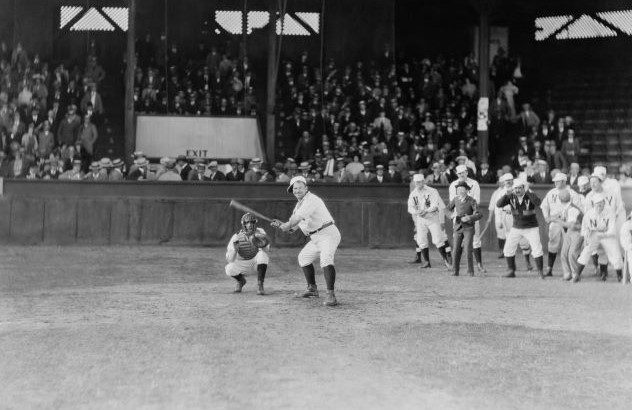
A lot of not-nice things could be said about Cap Anson—like that he demonstrated racist tendencies and refused to play baseball if the opposing team had any African Americans. Anson also allegedly belonged to the Klu Klux Klan. While Anson was not directly responsible for causing African Americans to be segregated from playing professional baseball for years, his actions contributed. In 1876, Anson joined the Chicago White Stockings, where he played 22 seasons for the team that later became the Cubs. When he retired in 1897, Anson held several major league baseball records involving doubles, runs, and hits.
Besides his racist history and strong playing performance, Anson is also remembered for a very odd pre-game superstition. It’s common before baseball games for teammates to chat with one another about all kinds of things. Anson eschewed this, especially if the pitcher was involved. Anson refused to speak to his own starting pitcher. It remains uncertain how this became a superstition for Anson, but it was an odd one indeed.[3]
7 Believing His Bats Had Individual Personalities
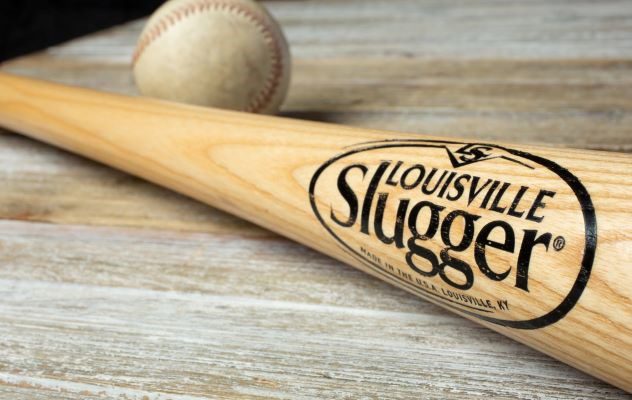
Louis Rogers “Pete” Browning (or as he was better known, “The Louisville Slugger”) was an outfielder in the Major League from 1882 to 1894. He spent most of his time with the Louisville Eclipse (later the Colonels). He was unusually the first baseball player to have custom-made bats, which started a practice that exists to this date. The Louisville Slugger also played despite serious medical conditions that made him nearly deaf and gave him headaches.
Recent studies have suggested Browning might not have been as good a player as the legend makes him sound. Several reports stated that Browning played defense on one leg, so other players didn’t run into him, while other stories exist that he was a bad fielder because he often played drunk.
Browning took his superstitious-ness about bats to a whole other level. He named his bats, talked to them, and even retired them after a short usage period. Browning later commented that he believed each bat only had a certain number of hits built into it.[4]
6 Putting Pebbles in His Back Pocket
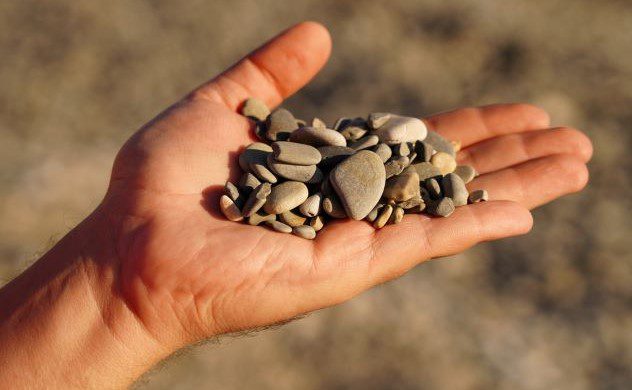
A shortstop for Major League Baseball from 1879 to 1895, John Wesley “Jack” Glasscock earned the name “Pebbly Jack” due to his love of pebbles. Glasscock was one of the top players in the 1880s while baseball was still being played bare-handed. Glasscock was the first player to appear in more than 600 games as a shortstop. He ended his career with several records involving games, assists, double plays, and total chances.
Glasscock was known for looking throughout the infield dirt for tiny pebbles, which he’d place in his pocket to prevent the baseball from experiencing bad hops. Other infielders who did not follow this practice were more inclined to experience ground balls with bad hops. This is perhaps the only case where a baseball superstition made a player tangibly better.[5]
5 Believing a Cross-Eyed Woman Hexed a Game

Known as “Blackjack,” John Joseph Burdock played second base in Major League Baseball for more than 20 years. He was known as a skilled fielder and even had a hidden ball trick. By the end of the 1880s, however, Burdock was facing both injuries and alcohol addiction. Burdock was released from the Boston Red Capps in 1888. He soon signed with the Brooklyn Bridegrooms for the rest of the 1888 season. He didn’t play the next two years and retired in 1891 with his last season with Brooklyn.
An interesting superstition of Burdock’s was revealed in a June 1879 edition of the Chicago Tribune. While on his way to play the Cincinnati Reds, Burdock noticed a cross-eyed woman in the window of a building. After Burdrock’s team lost, he stated that the woman had placed a hex on the team. The article goes on and, in inappropriate, racist language, details how the Red Caps declared a young African American boy was “lucky” and paid him half a dollar to return the following day.[6]
4 Never Proceeding from the Bench to Second Base
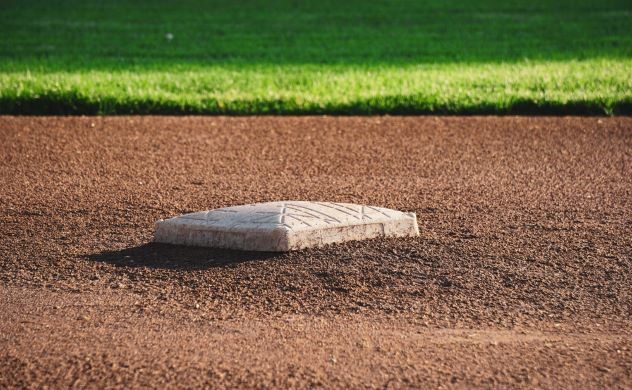
Always aggravated, Bill Eagan played well and pleased the crowd. He even gained the name “Bad Bill” due to his rough attitude, which led to a suspension in August 1891. Following a night of cards and drinking, Eagen lied to the team owner and claimed a finger injury prevented him from playing the next day. Another story tells of Eagen throwing empty beer bottles out of his hotel room and almost hitting the skulls of several passing Sisters of Mercy nuns.
Eagan’s superstition was that he would never proceed directly from the bench to second base. Instead, Eagan would either tiptoe to the third base line from home plate and around third or go up the first base line and around first. [7]
3 Always Swinging at the First Ball
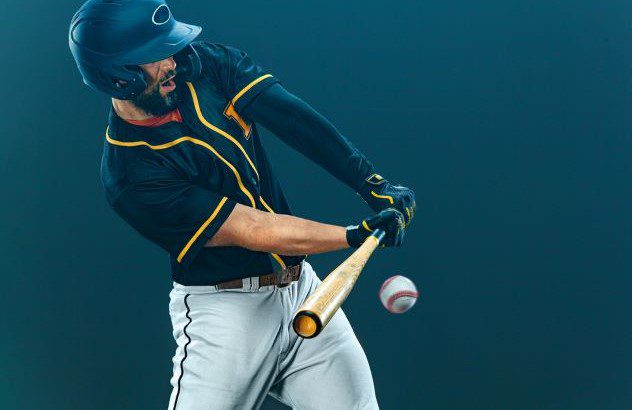
Starting in 1877, at least 70 African Americans played in minor league baseball until the end of the 19th century, at which point segregation separated African-Americans from playing with whites. John W. Jackson (“Bud Fowler”) was one of the first African American baseball players and the first player who played for ten seasons. He was also an exceptionally good baseball player for his time and helped other African American players find opportunities.
In 1889, while Jackson was playing as a second baseman for the Michigan State League, the Grand Rapids Democrat described a peculiar superstition that Jackson had developed. Jackson followed the superstition of swinging at the first ball over the plate no matter what, even if it was far over his head or if it hit the plate.[8]
2 Using Children, Dogs, and Monkeys as Good Luck Charms
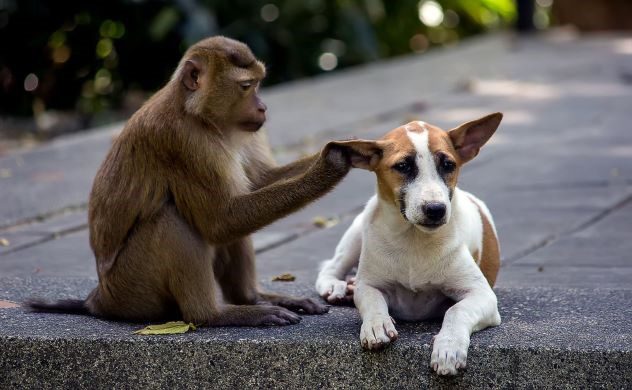
William “Buck” Ewing was one of the best catchers of the late 19th century. He also hit over .300 ten times. After starting with the Troy Trojans in 1880, Ewing later moved to the New York Giants in 1883. An arm injury ultimately cut Ewing’s career short in 1891.
Ewing had a love of good luck mascots, which included a line of young children like William Breslin. These young boys were generally recruited from New York streets by players who were looking for a good luck charm. Besides boys, the New York Giants also had a mascot in the form of a ring-tailed monkey and a toy barking dog.[9]
1 Bat-Carrying Redheads Were Bad Luck

William “Bill” G. Gleason played shortstop for Major League Baseball from 1882 to 1889 for several different teams. He first entered the majors in 1882 with the Saint Louis Browns, where he and his brother were the first siblings to play in the same major league infield. On the field, Gleason is remembered for a gruff personality.
During one interview with the Harrisburg Telegraph in 1884, an “old base baller” attending the game mentioned a list of well-known superstitions among famous baseball players at the time. The “old base baller” mentioned that Gleason had a superstition against redheads and got ghostly white whenever he saw a red-headed boy carrying his bat bag. Gleason viewed a redhead carrying his bat as bad luck of the very worst kind. [10]







